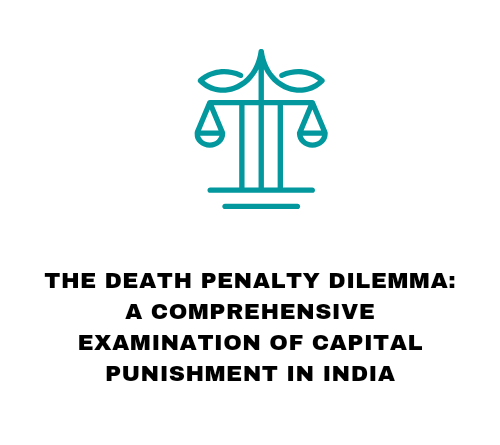The Death Penalty Dilemma: A Comprehensive Examination of Capital Punishment in India
The death penalty has long been a subject of intense debate globally, and India is no exception. This article undertakes a detailed exploration of the death penalty in India, scrutinizing its historical context, legal framework, ethical considerations, and the ongoing discourse surrounding its efficacy and human rights implications.Historical Context:The roots of capital punishment in India can be traced back to ancient times, where it was often administered for severe crimes. Over the years, the application of the death penalty has evolved, influenced by various legal, social, and political factors.Legal Framework:The legal foundation for the death penalty in India is primarily enshrined in the Indian Penal Code and the Code of Criminal Procedure. The death penalty is reserved for the “rarest of rare” cases, a principle established by judicial precedent. The Indian judiciary carefully weighs aggravating and mitigating factors before imposing the ultimate punishment.Ethical Considerations:The ethical dimensions of the death penalty in India have sparked fervent discussions. Advocates argue that it serves as a deterrent to heinous crimes and provides a form of retribution for victims and their families. However, opponents raise concerns about the irreversibility of the punishment, the potential for miscarriages of justice, and the moral implications of state-sanctioned killing.International Perspectives:India’s stance on the death penalty aligns with the global diversity of opinions. While some countries have abolished capital punishment, considering it a violation of human rights, others maintain it as a legal recourse for specific crimes. India’s adherence to international treaties and conventions on human rights shapes its position on the death penalty within the broader global context.Ongoing Discourse:The discourse surrounding the death penalty in India is dynamic and multifaceted. Advocates argue for its retention, emphasizing its deterrent effect and symbolic importance, while opponents call for its abolition, citing concerns about its fairness, potential for error, and the moral and ethical implications of taking a human life in the name of justice.Reform and Abolition Movements:In recent years, there has been a growing movement within India to reassess the use of the death penalty. Calls for reform include demands for more stringent safeguards to prevent wrongful convictions, improved legal representation for defendants, and a reevaluation of the criteria for determining “rarest of rare” cases. Some advocate for the outright abolition of the death penalty, aligning with the global trend toward recognizing the inherent flaws in its application.Conclusion:As India grapples with the complexities of the death penalty, it is crucial to consider its historical evolution, legal intricacies, ethical implications, and the ongoing discourse surrounding its relevance and efficacy. The dynamic nature of this debate underscores the need for continued reflection, reform, and a nuanced understanding of the role of capital punishment in the pursuit of justice within the Indian legal system.





